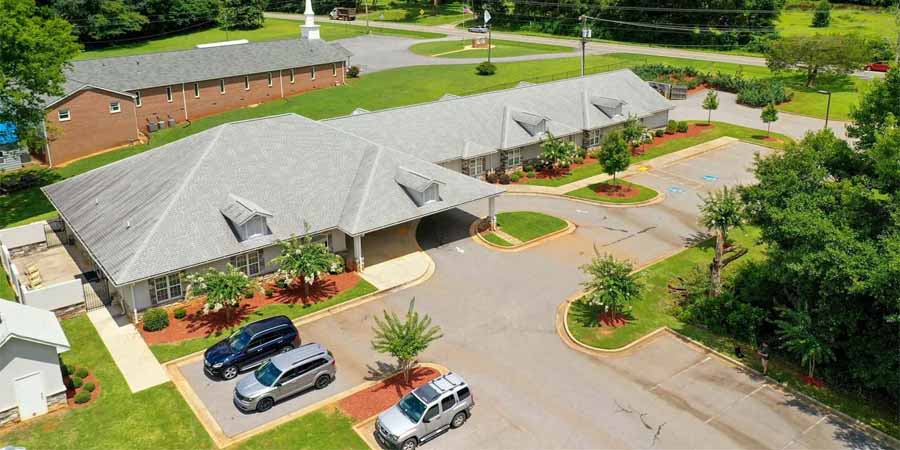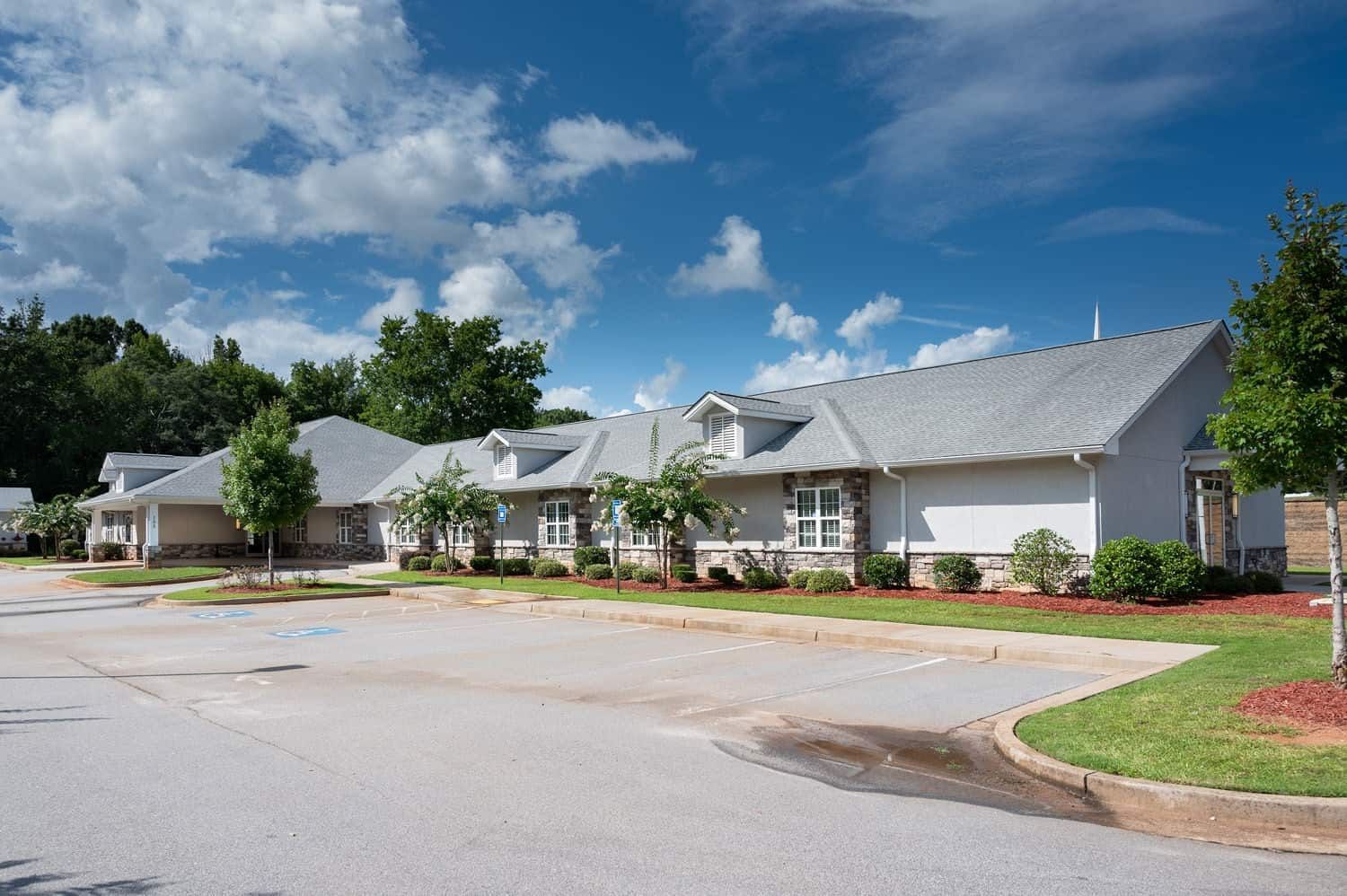Drug Detox Near Atlanta
Our drug detox in Atlanta, Georgia, can help you quit drugs and begin long-term recovery. Attempting to detox alone at home puts you at a higher risk of relapsing during withdrawal—and can lead to dire consequences including overdose and death. Our detox services will help you overcome withdrawal symptoms to reduce the risk of relapse in early recovery.
At the Retreat of Atlanta, we offer high-quality detox programs in Georgia to get you started on your recovery journey. Call us now at 762-242-6556 or visit our admissions page today to get started.
Our Drug Detox Programs Near Atlanta, Georgia
Our drug detox near Atlanta, Georgia, can help people detox from a variety of substances. We offer programs specifically catered to the drug you are misusing as we know different substances have varied timelines and side effects.
Drugs we offer detox programs for include:
Opiates
Opiates are derived directly from the poppy flower, such as morphine and codeine. In the majority of cases, withdrawal symptoms start within 24 hours of a person’s last dose.
Prescription Drugs
The length of prescription drug detox varies depending on the exact substance being used and how long the drug stays in a person’s system. Fortunately, we offer detox for CNS depressants such as benzodiazepines, opioid painkillers, addictive over-the-counter (OTC) medications, and prescription stimulants such as ADHD medications.
Benzodiazepine
Benzodiazepines (benzos) are prescription drugs that treat anxiety and insomnia. Commonly prescribed benzos include Ativan, Valium, and Klonopin. Misusing benzos, however, can lead to an addiction.
Xanax
Xanax is a benzodiazepine, traditionally used for sleep or anxiety. However, Xanax is an incredibly addictive substance. Due to its life-threatening withdrawal symptoms, medical intervention is often needed for a safe detox.
Heroin
Heroin is an incredibly addictive substance that wreaks havoc on countless lives. Given that it is a short-acting opioid, withdrawal symptoms start as soon as 6 hours following an individual’s last dose.
Cocaine
The side effects associated with cocaine detox present within 24 to 72 hours after an individual’s last dose. These symptoms lessen after about a week. However, drug cravings might persist long after detox.
Meth
Methamphetamine withdrawal symptoms are known to last for an extended period of time and be particularly painful. Symptoms surface within the first 48 hours and can continue for weeks.
Fentanyl
Fentanyl is an incredibly addictive substance that often results in overdose. Our fentanyl detox program can help individuals safely quit of this harmful substance.
Alcohol
Alcohol is associated with some of the most dangerous withdrawal symptoms, including seizures, and hallucinations. These side effects begin to surface as early as 6 hours following a person’s last drink.
Kratom
Kratom is an addictive drug derived from a South Asian tropical tree. Depending on how much a person uses, the effects are different. At low doses, kratom is more like a stimulant drug, whereas, it works as sedative at higher doses.
Marijuana
Despite gaining legal status throughout the country, marijuana is still an addictive substance. Our marijuana detox program can help you with symptoms of marijuana withdrawal so you can overcome cannabis use disorder.
About Drug Addiction
Drug addiction is a chronic, relapsing mental disorder where you compulsively abuse drugs despite adverse consequences.
According to MedlinePlus, “Repeated drug use can change the brain and lead to addiction.” Furthermore, these changes in the brain can last a long time. Therefore, “people in recovery [from addiction] are at risk for taking drugs again, even after years of not taking them.”
Not everyone who uses drugs gets addicted. However, you could be at a higher risk of addiction if the following apply to you:
- Family history of substance abuse or mental illness
- Adverse childhood experiences (ACEs)
- History of traumatic experiences
- Underlying mental health disorder (and using drugs to cope)
- Chronic health conditions causing chronic pain
The longer you use drugs—and the more drugs you use—increases your chances of developing an addiction. After a while, your brain and body depend on drugs to function normally. As a result, when you try to quit, you have withdrawal symptoms and cravings—which is why many people relapse and continue abusing drugs.
How Do I Know I Need Drug Detox?
You need drug detox if you cannot stop using drugs despite negative consequences.
Since compulsive drug use changes the way your brain functions, you’ll have several symptoms of addiction. Many of these symptoms are behavioral because you lose control over yourself in the throes of drug addiction.
The following are common symptoms of drug addiction:
- Strong urges and cravings to use drugs throughout the day
- Preoccupation with drug use that invades your thoughts nearly all the time
- Needing more drugs to get the same effects as before
- Abusing more than one drug to enhance the effects
- Financial issues from spending money on drugs
- Using or recovering from drug use gets in the way of fulfilling your daily responsibilities
- Increased conflicts with family and friends
- Engaging in reckless behaviors while under the influence
- Losing interest in social activities or hobbies that don’t involve drugs
- Trying to quit or cut back on drug use but failing at these attempts
- Continuing to abuse drugs despite negative consequences
- Withdrawal symptoms appear when you stop using
If you have the signs and symptoms mentioned above, you need professional drug addiction treatment. Furthermore, some people have high-functioning addiction—meaning they have some of the above-mentioned signs without the usual outward signs. Regardless, the main reason you need detox is to manage withdrawal symptoms.
What Are Withdrawal Symptoms?
Many people think they can quit on their own. However, they often fail to do so because of unpleasant withdrawal symptoms.
Common withdrawal symptoms include the following:
- Cravings
- Nausea and vomiting
- Headache
- Flu-like symptoms (congestion, runny nose, sore throat)
- Anxiety and depression
- Fever
- Profuse sweating
- Tremors
- Irritability
- Fatigue
- Insomnia
As a result of withdrawal symptoms, many people go back to abusing drugs to rid themselves of these symptoms. Cravings kick in because your body and mind no longer know how to function without drugs in your system. Thus, this is how the cycle of addiction continues.
But, you can break the cycle of addiction by getting professional help to manage your withdrawal symptoms.
No matter what substance you abuse, our drug detox in Atlanta, Georgia, can help you overcome your addiction to begin lifelong recovery.

Begin Your Treatment Today
Your journey to a healthier, more fulfilling life starts here. The Retreat of Atlanta’s caring professionals are committed to providing individualized treatment that respects your unique needs. Reach out now to secure your place in our supportive community and take the first step towards a brighter future.
What To Expect During Drug Detox Near Atlanta, Georgia
During drug detox, you can expect evidence-based treatment and high-quality care from experienced and compassionate professionals.
In our home-like setting, you’ll get round-the-clock care and support throughout withdrawal. This will help you get through detox safely and comfortably. Our staff of addiction specialists will give you the care you need throughout this challenging process.
In addition, you can expect a welcoming environment from your peers in recovery. Peer support is a critical aspect of long-term addiction recovery. Throughout detox, you and your peers will navigate the early stages of recovery together.
How Long Does Detox Last?
Drug detox typically lasts one to two weeks.
While the withdrawal timeline is different for each person, most people will complete drug detox within one to two weeks. This gives you enough time to go through the acute phase of withdrawal. Our drug detox in Atlanta offers specialized treatment for this critical time when you need significant medical and psychological support.
Although you could have lingering symptoms after detox, these symptoms will be fairly manageable compared to acute symptoms. Still, you’ll want to attend a drug rehab program afterward to prevent relapse in early recovery.
Medications Used During Drug Detox Near Atlanta
Medications can help to treat symptoms related to opioid and alcohol use disorders. Medication-assisted treatment (MAT) combines behavioral therapy with FDA-approved medications for the treatment of alcohol and opioid addiction. These medications help to reduce the risk of relapse and overdose during early recovery.
Medications used during our MAT program include:
- Methadone: This opioid agonist makes the brain think someone is still using opioids, without getting them high.
- Buprenorphine: This is given to prevent relapse long-term as it works similarly to methadone but is less potent.
- Sublocade: An injectable form of buprenorphine, Sublocade can help you manage symptoms of opioid use disorder (OUD) for up to a month between doses.
- Clonidine: This medication helps with withdrawal symptoms such as feelings of anxiety, upset stomach, and muscle aches.
- Acamprosate: This medication is crucial in reducing long-term symptoms of alcohol withdrawal including sleep disturbances and severe anxiety.
- Naltrexone: This medication essentially blocks the opioid receptors to reduce cravings as well as prevent relapse and overdose.
- Vivitrol: As an injectable form of Naltrexone, Vivitrol can help you manage cravings for several weeks between injections.
Behavioral Therapies Offered During Detox
Behavioral therapy is a vital aspect of our drug detox in Atlanta.
Oftentimes, people abuse substances to mask underlying mental health symptoms. Common symptoms leading to substance abuse include social anxiety, low self-esteem, depression, and trauma. Over time, drug use changes the way your brain functions—and you could develop a mental health disorder.
According to the National Institute on Drug Abuse (NIDA), “Of the 20.3 million adults with substance use disorders, 37.9% also had mental illnesses.”
We offer the following behavioral therapies at the Retreat of Atlanta:
- Cognitive-Behavioral Therapy (CBT): CBT is among the most common types of psychotherapy. In fact, several other therapeutic modalities are based on CBT. During CBT, your therapist will help you identify—and change—unhealthy beliefs that drive addictive behaviors.
- Dialectical Behavior Therapy (DBT): DBT helps people with extreme mood swings and emotional dysregulation. Oftentimes, these symptoms lead to impulsive and self-destructive behaviors, including substance abuse.
- Individual Therapy: Everyone in treatment for addiction needs one-on-one support from a licensed therapist. During individual therapy, you can get to the root causes of your addiction.
- Group Therapy: It’s also critical to engage in therapy with others who have similar struggles. By sharing your story and listening to the experiences of others, you can feel less alone in your recovery. In group therapy, a trained therapist leads a discussion among you and your peers.
- Family Counseling: Relationships with family members are often disrupted because of addiction. Family counseling helps you repair damaged relationships with your loved ones.
- Holistic Therapy: Holistic therapy addresses the whole person in recovery including their physical, emotional, and spiritual well-being. Our approaches include yoga, meditation, and nutritional guidance.
- Psychiatry: Prescription medications like anti-depressants, anti-anxiety medications, and mood stabilizers can help you manage symptoms of a co-occurring mental health disorder. Our psychiatry services will help you find medications to improve your mental health.
How Much Does Drug Detox Cost?
Drug detox costs can vary based on the types of services you need and how long it takes you to go through acute withdrawal. However, many insurance carriers cover drug and alcohol detox as an essential health benefit. This is because the Affordable Care Act (ACA) considers substance abuse treatment as an essential benefit.
If you have questions about your insurance coverage, please contact our admissions team today. We can help you determine what your plan will cover to lower the costs of drug detox.
Begin Drug Detox Near Atlanta Today
Drug addiction affects millions of Americans each year, leading to poor quality of life, medical issues, mental health disorders, and fatal overdoses. Unfortunately, many people never get help and fail to quit using drugs on their own due to distressing withdrawal symptoms. Our drug detox in Atlanta can help you safely manage withdrawal symptoms to begin your recovery.
Contact us today to start drug detox.
Areas Serviced
More on Drug Addiction
Boofing Drugs and Why It’s Dangerous
What Are The Effects of Polydrug Abuse?

Medically Reviewed By:
Dr. Eddie Richardson, MD
Dr. Eddie Richardson, Board certified family medicine doctor with a specialty in geriatrics and palliative medicine, GA License # 052047

![]()








